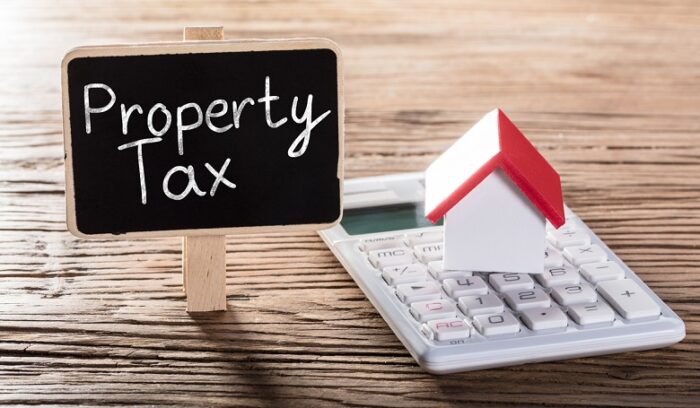
Buying a home doesn’t just save you money by building equity or lowering your monthly payments. It also saves you money at tax time. You can claim a slew of deductions that will save you money at tax time. This can help you save enough money on taxes to pay for the home improvements you want without needing to find home improvement loans with bad credit. While many tax deductions and credits exist, this article talks about the top thirteen tax tips you won’t want to miss. At Taxry, that means offering you tax tips, but it’s more than that – plain, simple English articles explaining different aspects of your personal taxes.
1. Active-military Deduction for Moving Expenses

Active-duty military personnel often go through a permanent change of station (PCS) and those moves can cost a lot of money. If the military did not reimburse you for the moving expenses, you can deduct them. That includes the cost of the moving company you used or a rental trailer to haul items to the new assignment, plus the cost of getting there. You can claim the airfare or gas or lodging costs, too, but not the meals. You can also claim storage costs for up to 30 consecutive days after the date you vacate your old residence, but before they arrive at the new one.
2. Mortgage Interest Deduction
You can deduct mortgage interest or home equity line of credit (HELOC) interest you pay on your primary or secondary home. You do not get to take this on investment properties. If you obtained your mortgage before December 15, 2017, you can deduct interest you paid up to $1 million. You can deduct $500,000 if you file separately but are married. If you obtained your loan after December 15, 2017, your maximum deduction is $750,000 or $375,000 if you file separately but are married. You can also only take the HELOC deduction if you used the money to improve or build onto the home that you built the equity in.
3. Property Tax Deduction

You can deduct your property taxes and up to $10,000 of local and state income taxes or $5,000 if you file separately but are married. Unlike the mortgage deduction, you can include the property taxes paid on all real estate you own, including your real estate investment property.
4. Mortgage Points
You can claim the points you paid on your home mortgage as a deduction. Your loan papers may not refer to them as points, so also look for the terms loan discount, loan origination fees, discount points, and maximum loan charges.
5. Medically Needed Home Improvements
You don’t typically get to deduct home improvements, but if you had to make the improvements because of a medical need, you can. You have to show that you needed the item for a medical reason, but you can deduct the cost of wheelchair ramp installation, bathroom modifications like grab bars in the shower, or having the cabinets and kitchen surfaces lowered so you can reach them from a wheelchair.
6. Closing/Settlement Real Estate Property Taxes Deduction

First-time home buyers, rejoice. Here’s another deduction just for you. When you purchase a home, part of the costs at the closing includes a portion of the property’s real estate taxes. The seller pays for the other part. If you purchased a home during the tax year, you can deduct the portion of the closing property taxes you paid.
7. Mortgage Interest Tax Credit
Yep, you see the word credit there. You get a credit on the mortgage interest if you meet the income cap. The Internal Revenue Service created this credit to make it easier for lower-income individuals to buy a home. You get to take it every year for part of the interest paid on the mortgage.
8. Solar Interest Deductions
The only other time you get to deduct home improvements is those that add to your home’s energy efficiency. The tax year deduction for 2024 is 26 percent of your expenses, and in the 2024 tax year, it will be a 22 percent deduction.
That’s it. The top eight deductions, which technically consists of seven deductions and one credit. They all help a homeowner save money. Now, you do not have to worry about finding home improvement loans with no equity.
9. Retirement Credits

Depending on the adjusted gross income you report on Form 1040, you can get a tax credit of either 50%, 20%, or 10% for contributions to a retirement plan, such as a 401k plan or traditional or Roth IRA. Rollover contributions are not eligible for the credit.
Maximum contribution amount for credit is $2,000 (or $4000 if married filing together), and maximum credit $1,000 (or $2000 if married filing together). To help you calculate credit, the IRS offers a chart.
10. IRA Contributions
For 2024, the maximum contribution to a Roth IRA or traditional IRA is $6,000 plus $1,000 for those who are 50 years or older. Contributions to a traditional IRA can be deducted from your taxes
11. Student Loan Interest
Maximum student loan interest deduction: $2,500 You cannot deduct student loan interest if you are single with an AGI of over $80,000, or if you file jointly with a spouse and have an AGI greater than $165,000
12. Self-Employed Health Care Premiums

Self-employed can deduct 100% of your monthly health insurance premiums for yourself, your spouse, and any dependents. This is regardless of whether you itemize deductions or not, according to Robert Charron, a CPA who heads the tax department at Friedman (a New York-based accounting company).
13. Charitable Contributions
Contributions of cash can be deducted up to 60% from your adjusted gross income. Itemized deductions are also available for items and property donations.
Only for 2024 and 2024, the CARES Act allows those who have donated money to charitable, educational, scientific, or literary purpose organizations as a result of the coronavirus epidemic to claim a $300 deduction. This can be in addition to the standard deduction, and does not need to be itemized.








